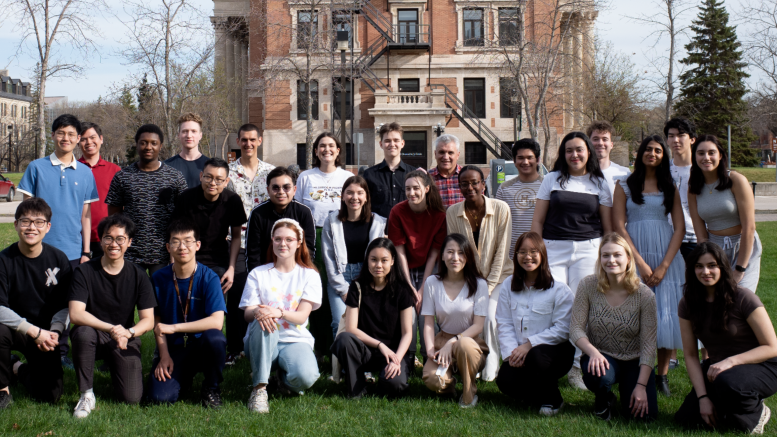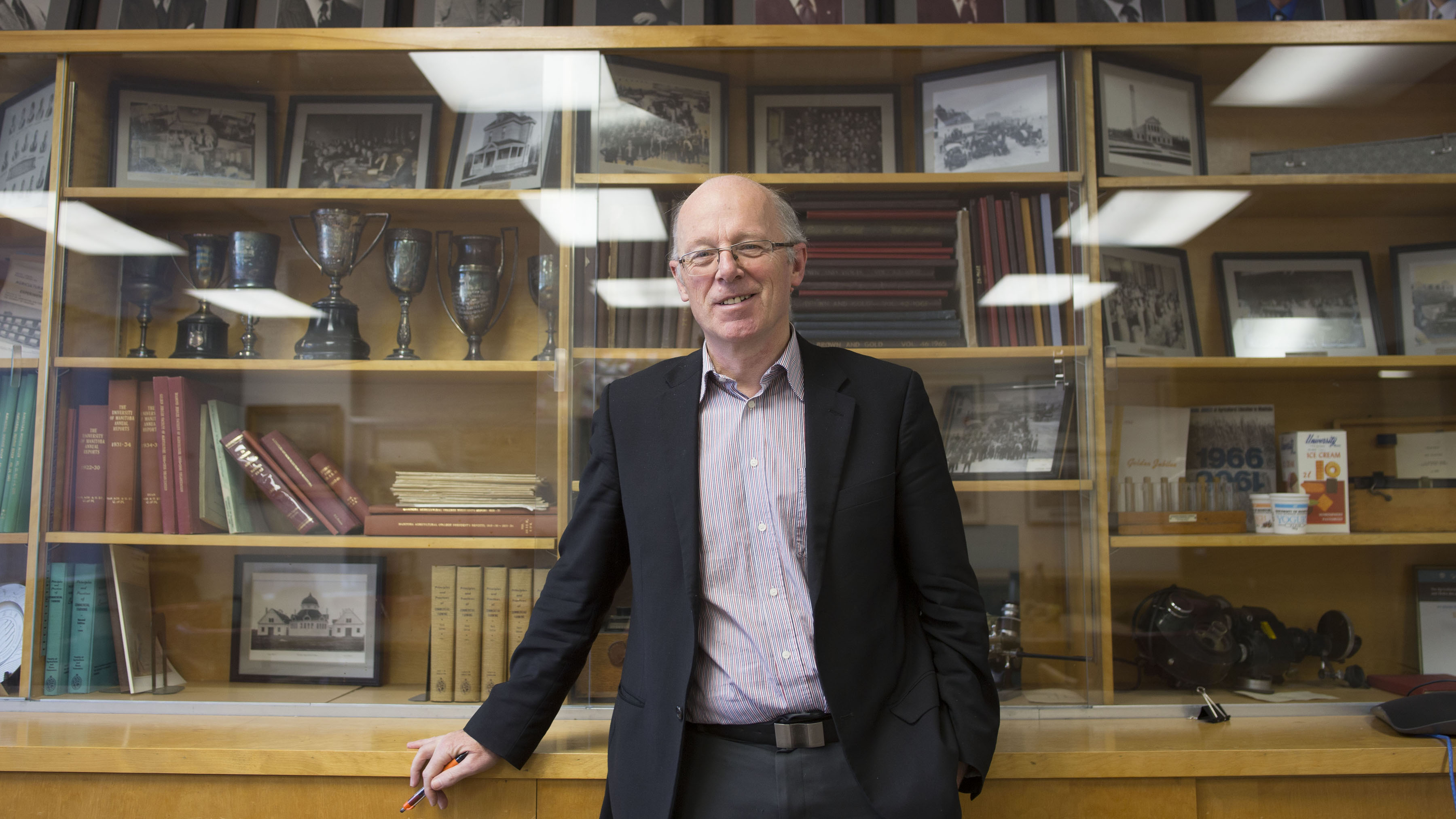U of M interdisciplinary undergraduate student group Prairie iGEM is aiming to solve recycling practices and problems with polylactic acid (PLA) plastic in Manitoba through their project, PLAnet Zero.
As a student-led group, Prairie iGEM focuses on synthetic biology projects — redesigning organisms to gain new abilities — that address real-world issues. The group embarked on its first full-year project in 2022, centring around the theme of synthetic biology and its application to solve environmental challenges.
Last November, Prairie iGEM secured a silver medal at the iGEM 2023 Grand Jamboree, showcasing their PLAnet Zero project. The team plans to continue the project into the 2024 iGEM cycle, motivated by the potential to make a lasting difference.
Members of Prairie iGEM, Oleksandra Havruk, Karthika Babu and Camille Prefontaine, all from the faculty of science, shared their insights into their ongoing project and its future trajectory.
With prairie iGEM’s current endeavour, the PLAnet Zero project, the group aims to address the inefficiencies associated with the recycling of compostable PLA in Manitoba. PLA is a bioplastic made from renewable and organic materials such as cassava and sugar cane.
While PLA is biodegradable, its practical use has been limited to industrial setups due to the requirement for consistently high temperatures during composting.
Given Manitoba’s cold winters, traditional bioreactors (vessels that break down raw materials using microorganisms under controlled conditions) struggle to maintain the required temperature for PLA breakdown, causing environmental and operational issues.
The team’s solution involves creating a bacterium native to the compost environment that efficiently breaks down PLA at lower temperatures, preventing machinery damage and process interruptions during the winter months.
The research team divided their work into two main theoretical approaches.
First, they targeted five enzymes, enhancing their efficiency by modifying their composition to improve PLA degradation at lower temperatures. The second approach involved anchoring enzymes on the surface of a model organism, E. coli bacteria, optimizing contact with PLA for improved productivity.
“That would provide more contact with the PLA for the bacteria so that bacteria could directly use it as the energy source,” said Havruk.
The PLAnet Zero project goes beyond the scientific aspect, involving an industry team for fundraising and significant considerations for human practices.
Aside from inefficient PLA degradation, the team identified a need for better recycling habits in the community. Babu highlighted a lack of awareness regarding the proper disposal of PLA plastic, adding that PLA should be directed to composting bins for environmentally responsible disposal rather than recycling bins.
As the project continues, Prairie iGEM aims to implement improvements by conducting surveys, raising awareness and collaborating with composting facilities.
“There’s all these things we wanted to do that we didn’t end up being able to do,” Babu said, regarding the team’s plans for 2024. “There’s a lot more potential for this project.”
Additionally, the team values community support — observing a shift from the previous year with increased engagement and backing from local businesses and beyond the U of M campus. Prefontaine emphasized continued collaboration with the community to ensure the project’s success.
Members of Prairie iGEM emphasized the interdisciplinary nature of their group, welcoming students from various faculties to contribute.
“There’s so many aspects to Prairie iGEM that has nothing to do with actually being in a lab,” Babu said, emphasizing that Prairie iGEM offers numerous avenues for involvement, irrespective of one’s academic background.
“We want to make sure that people know that there’s so many ways to get involved.”




